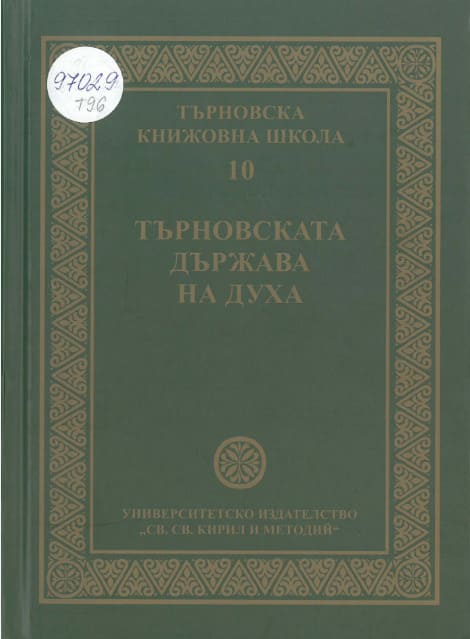
We kindly inform you that, as long as the subject affiliation of our 300.000+ articles is in progress, you might get unsufficient or no results on your third level or second level search. In this case, please broaden your search criteria.


The study is an essay to draw a classification of the lexemes with foreign origin, mostly Greek and Latin, according to the 13th original works of Patriarch Eythymius. Those lexical strata englobe multifunctional and nonhomogeneous unities, dispersed in different textual contexts. They are just a nuance, not the base of the vocabulary, but perform important historical, cognitive, and stylistic functions, rising the prestige of the lexical richness, and crediting it with international dimensions in basic conceptual spheres of Christianity.
More...
The subject of this article is the social status of 22 grammarians known from the medieval Bulgarian sources. The period on which names “grammarians” are found in the Bulgarian Middle Ages is of Xth to beginning of XVth century. One of the goals is to point out what is the status of the “grammarian” in Medieval Bulgaria – is it a service, an alias, a title or an epithet. The places which are connected to these people have been researched. The work of grammarians is mainly connected with copying theological books or with translations from Greek to Old Bulgarian. The Old Bulgarian grammarians are mostly secular persons who work for churches or monasteries. Their work is custom-made or in some cases the work for a fee. The alias “grammarian” in medieval Bulgaria has no official character, it is not a title with designated service. In indicates to certain professional skill, level of education and deserved status higher than the one that an ordinary medieval scribe has.
More...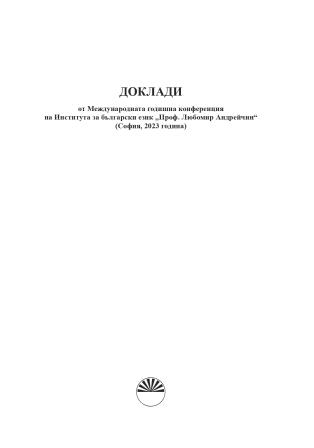
The object of study in this article are the morphological peculiarities of the nominal system in the hitherto unattributed liturgical commentary of MSS RGADA 88 and Bogishich 52. On the basis of a thorough linguistic analysis linguistic data are gathered about the age in which the work appeared and the literary school to which its author belonged. This investigation shows that as regards its morphological characteristics, the commentary has the characteristic features of Southern Slavonic literature, which conform to the linguistic norms probably already established on Mt. Athos in the first decades of the 14th century and adopted by the Tarnovo men of letters as well, norms underlying the Resava orthography in Serbia later. Judging by the linguistic data examined, the commentary could have been written in the Western Bulgarian or the Eastern Serbian lands by an author who had a command of Old Bulgarian and observed its morphological and syntactic norms by using synthetic nominal forms at the time when the new analytical system had already established itself in the vernacular.
More...
The object of this paper is the study of a bilingual letter book with a view to the employed terminological means. They are presented in several thematic fields and interpreted in terms of their composition, semantics and etymology. Of particular interest is the terminological lexicon in letters of an administrative, legal and commercial nature, which belong to several areas: administrative units and institutions; legal and administrative terminology; documents, acts and other forms of public interaction; positions and posts; commercial and financial terminology. The terminological lexis is structured as small dictionaries, presenting the term words and phrases independently. The dictionaries explain the meaning of each term, accompanied by an etymological reference.
More...
The paper addresses three groups of Bulgarian indefinite pronouns and pronominal expressions incorporating the element си and their Ukrainian counterparts in a parallel bilingual corpus. The study shows that the pronouns of the type еди-Q си mostly correspond to demonstrative pronouns or expressions featuring a demonstrative pronoun in combination with a deictic particle (-ось, -от or -то). Indefinite pronouns proper (of the types Q-сь, Q-небудь and де-Q), as well as demonstrative pronouns in combination with the reflexive pronouns собі, primarily correspond to Bulgarian pronouns of the type нѣ-Q си, whereas the expressions не знам/помня Q си have Ukrainian expressions with a parallel structure, including a cognitive verb, as their most frequent counterparts.
More...
The literature devoted to legal linguistics often ignores documents encountered in court discourse which contain expert conclusions (forensic investigation). This article attempts to determine the genre model of expert opinions. As part of it, there is also a brief explanation of the legal and cultural context of how judicial expertise works, since it directly affects the structure of the documents we are interested in. The authors compare the conclusions of forensic experts using documents taken from the Anglo-Saxon legal system (common law) and from the civil law system (Polish, Russian, and Bulgarian).
More...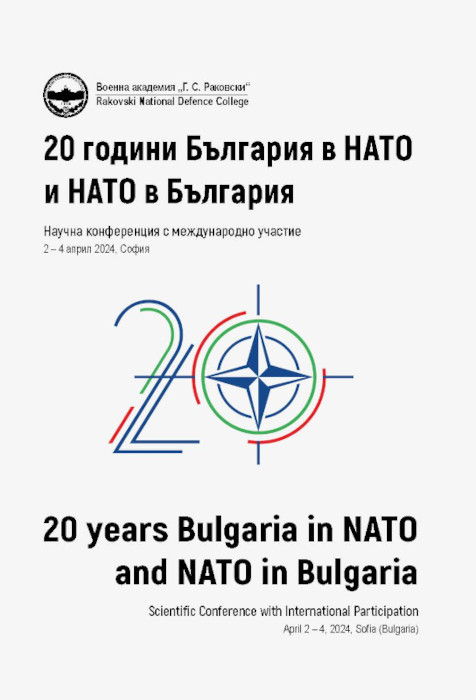
The article elucidates the role and significance of NATO activity in the process of the global spread of English as the means of international communication. It highlights the methods and directions of the Alliance activities aimed at the establishment of the global importance of the use of English in the field of international relations. The article analyzes the organization of language training for the military personnel of the Alliance member countries. The author presents the NATO standards of foreign language proficiency STANAG 6001. The main problems of language training in the Armed Forces of the North Atlantic Alliance are listed in the article and the means of their solutions are analyzed. The programs and strategies of military language education are presented as well as the ways of their integration into existing courses of professional military education. The paper analyzes the importance of the Defence Education Enhancement Programme and its interoperability for the allies and partners.
More...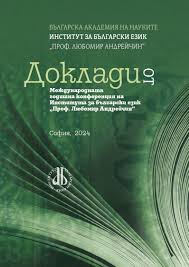
Based on authentic materials from the Romanian Linguistic Atlas (ALR II s.n.), examples of Romanian words are selected from the semantic field of water, fishing, and fish names. We focus on words of Slavic origin,more specifically, words with a Bulgarian and an Old Bulgarian etymology. Besides their linguo-geographic distribution and their areal properties – such as a wide distribution or limited attestation in the form of a so-called relic island – we examine: What other synonyms with non-Slavic etymologies does the respective word have, and can certain patterns be identified? In addition, we look at the phonetic variability of words and typical word formation processes. Furthermore, we attempt to draw possible conclusions about the region’s historical development. In their unpublished talk of 2016, Dahmen, Popovici conclude that most of the fish names in these areas are of Slavic origin,which testifies to the intensive settlement of Slavs in the lowlands and on the banks of the Danube River, which is supported by archaeological findings. It also confirms the traditional local Bulgarian-Slavic subsistence strategy of fishing. The word roots of many fishing terms are traceable back to the times of the Proto-Slavic homeland, so again we can confirm that fishing was a typical subsistence strategy of native Slavs.
More...
The paper discusses different types of situations in which the possessive group u + genitive is used to encode the subject. In Russian, such a group can be a marker of a wide range of subjects, including possessor (У него две собаки ‘He has two dogs’); experiencer subject of internal states (У меня было чувство/подозрение, что Р ‘I had a feeling/suspicion’), subject of involvement (У нас пожар ‘At our place we have a fire’; У него обыск ‘They conduct a search at his place’; У меня чайник перегорел ‘My kettle got burnt’), agent referent in situations with suppressed or lost control (У меня встреча ‘I have a meeting’; У меня мотор не заводится ‘My motor does not start’). Due to the coding of the subject by the u-group, all such situations receive a pseudo-possessive conceptualization. The Bulgarian correspondences to these Russian constructions have been analysed on the material from the parallel corpus.
More...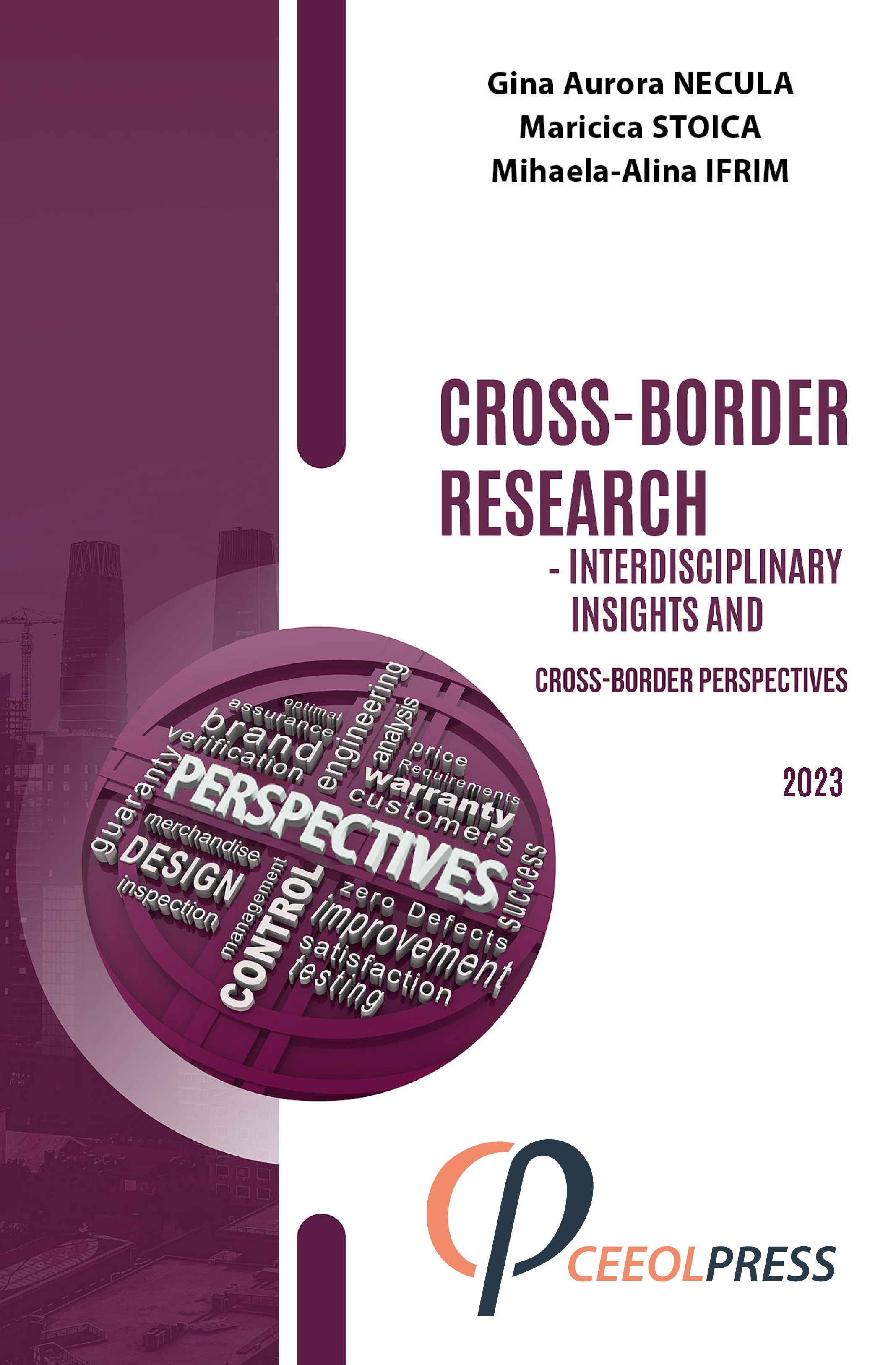
Human experiences have always been shaped by language and culture; thus, when it comes to translations, it is difficult to understand and transfer/transmit experiences that take place within different systems of filters than our own reference system. Cultural translation, which encompasses a multitude of meanings (as it may be seen as questioning the traditional parameters of translation, as referring to practices of literary translation that mediate cultural differences or attempting to render an extensive cultural background or to simply represent, via translation, another culture) raises complex technical issues in terms of dialect, literary allusions and/or culturally specific items. Such is the case of Orwell’s essay England Your England. This paper sets forth to investigate the mediation of the cultural elements within the translation process of the text from English into Romanian.
More...